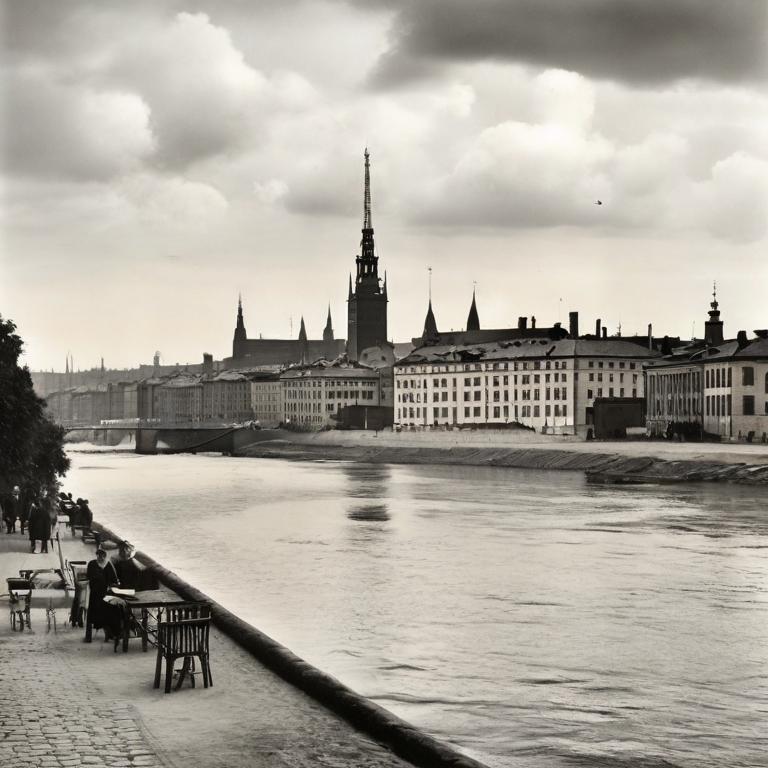What countries were neutral during World War 2? During the chaos of World War 2, some nations chose a path of neutrality. Wanting to steer clear of the conflict that gripped the globe.
Neutrality was often used as a strategic political stance to keep nations free from conflict.
These neutral countries played a pivotal role in several ways. In this article, we explore the choices made by these neutral countries standing on the sidelines of World War 2.
1. Switzerland
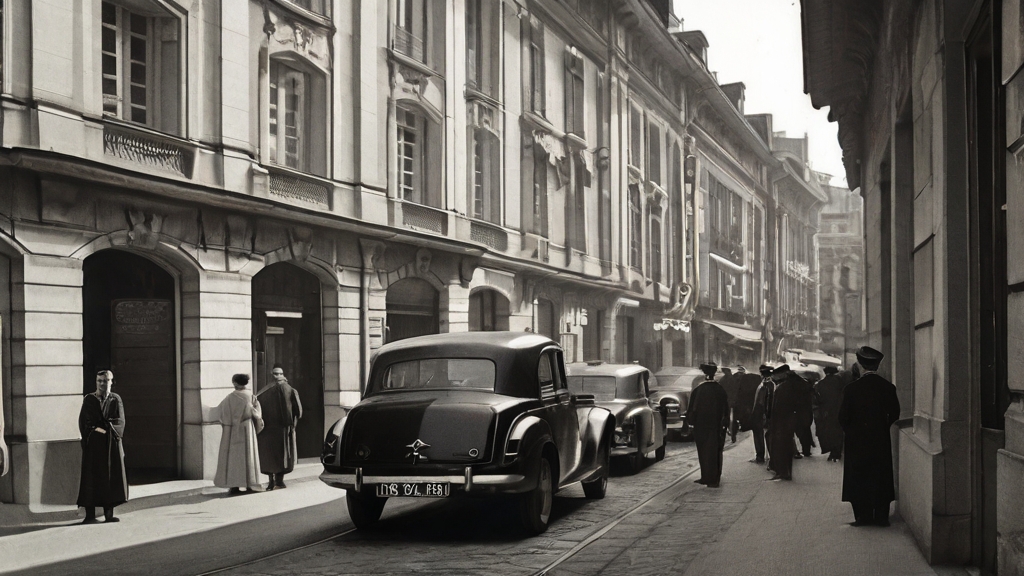
As the storm of World War 2 raged across the continents, Switzerland, located at the heart of Europe, remained resolute in its commitment to neutrality.
Switzerland became a vital hub for diplomacy and a beacon of economic stability and humanitarian efforts.
Switzerland’s Tradition of Neutrality
Switzerland’s dedication to neutrality is deeply rooted in its history.
Dating back to the Treaty of Westphalia in 1648, which recognized the independence of the Swiss Confederacy, Switzerland has maintained a steadfast policy of avoiding military alliances and conflicts.
This tradition was further solidified during the Napoleonic era, shaping Switzerland’s identity as a neutral nation.
Switzerland’s Role as a Diplomatic Hub During the War
During World War 2, Switzerland emerged as a crucial diplomatic hub.
Its neutrality allowed the country to host diplomatic talks and negotiations, facilitating communication between warring parties. Geneva became a sanctuary for discussions and an open channel for peaceful resolutions.
The nation walked a delicate balance of representing the interests of various nations, embodying its role as a neutral intermediary.
Economic Contributions
Switzerland’s economic resilience during the war was remarkable. Its banking and financial system, known for stability, played a key role in handling international transactions.
While the world faced economic upheavals, Switzerland remained a financial stronghold.
Humanitarian Contributions
Beyond economic stability, Switzerland demonstrated unwavering compassion through humanitarian contributions.
The International Red Cross, founded in Geneva, played a pivotal role in providing aid to refugees and displaced persons.
Switzerland’s commitment to medical assistance, along with efforts to protect cultural property and art, showcased a nation extending its hand to those in need.
2. Sweden
Sweden adopted a policy neutrality and non-alignment. Sweden carved out its own unique path, skillfully balancing the complexities of neutrality while actively contributing to global affairs.
Sweden, with a historical commitment to avoiding military alliances, formally declared its policy of neutrality at the outbreak of World War 2.
This neutrality was underpinned by a principled stance of non-alignment, steering clear of entanglements with either the Axis or Allied powers.
Despite neighboring nations being drawn into the conflict, Sweden steadfastly maintained its commitment to staying out of direct military involvement.
Sweden: Providing Assistance Without Direct Involvement
Sweden’s unique approach during World War 2 was characterized by a careful balancing act. While adhering to its policy of non-engagement, Sweden provided essential assistance without committing to direct involvement.
Humanitarian efforts were exemplified by the Swedish Red Cross, which offered medical aid and support to those affected by the war. Swedish diplomacy, though non-military, played a key role in facilitating communications and negotiations between belligerent nations.
Economic and Trade Considerations
At the heart of Sweden’s strategy lay a pragmatic understanding of economic and trade considerations.
The nation, although officially neutral, engaged in economic transactions with both sides of the conflict. This pragmatic stance not only bolstered Sweden’s economy during a tumultuous period but also played a part in supplying essential goods to war-torn nations.
The Swedish iron ore trade, in particular, became a focal point, with Sweden providing a crucial resource to both Axis and Allied powers.
3. Spain
Spain stood as a unique neutral country in World War 2.
Francisco Franco’s Regime and Its Decision to Remain Neutral
At the helm of Spain’s authoritarian regime, Francisco Franco faced a critical decision as World War 2 unfolded.
Despite his sympathies toward fascist ideologies, Franco opted for a policy of neutrality, keeping Spain out of direct military engagement. This decision was influenced by the scars of the Spanish Civil War, a desire for national rebuilding, and a pragmatic approach to safeguarding Spanish interests in a war-torn world.
It was in no position to fight another war, and it also wanted to avoid becoming a target of Allied bombing.
Simultaneously, Franco skillfully navigated international politics, maintaining diplomatic relations with both the Allies and the Axis without formal alignment.
Spain’s neutrality did not mean that it was completely isolated from the war. Spain allowed German and Italian troops to transit through its territory, and it also provided supplies to both sides. In addition, Spain was a major source of intelligence for both the Allies and the Axis.
Impact of Neutrality on Spain’s Post-War Relations
The consequences of Spain’s neutrality reverberated in the post-war era.
Despite the geopolitical isolation suffered during the war, Spain managed to position itself strategically in the aftermath. While initially facing diplomatic isolation, Spain gradually reestablished relations with the international community, eventually becoming a member of the United Nations in 1955.
4. Portugal

At the helm of Portugal’s authoritarian regime was António de Oliveira Salazar.
In 1939, Salazar officially declared Portugal’s neutrality, a decision deeply rooted in his conservative political philosophy. Salazar’s leadership aimed at preserving Portugal’s sovereignty and stability, seeking to shield the nation from the ravages of the global conflict.
Balancing Diplomatic Relations with Both Sides
Salazar skillfully maintained ties with both the Axis and Allied powers, employing a pragmatic approach to safeguard Portugal’s interests.
Lisbon became a hub for diplomatic exchanges, allowing Portugal to serve as a conduit for communications between warring nations while avoiding direct entanglements.
Economic and Geopolitical Factors Influencing Portugal’s Stance
The economic and geopolitical considerations shaping Portugal’s neutrality were nuanced. Portugal, economically fragile and heavily dependent on exports, sought to protect its trade interests amidst the war. The nation maintained critical economic ties with both sides, ensuring a lifeline for essential resources.
Portugal traded a variety of goods with both sides during World War, including wolfram, cork, tungsten and a variety of foodstuffs.
A commitment to stability allowed Portugal to weather the storm without succumbing to the devastation faced by many other nations. Salazar’s calculated approach not only preserved Portugal’s sovereignty during the war but also positioned the nation for a role in shaping the post-war era.
For more information about Portugal’s role in World War 2, please read here.
5. Ireland
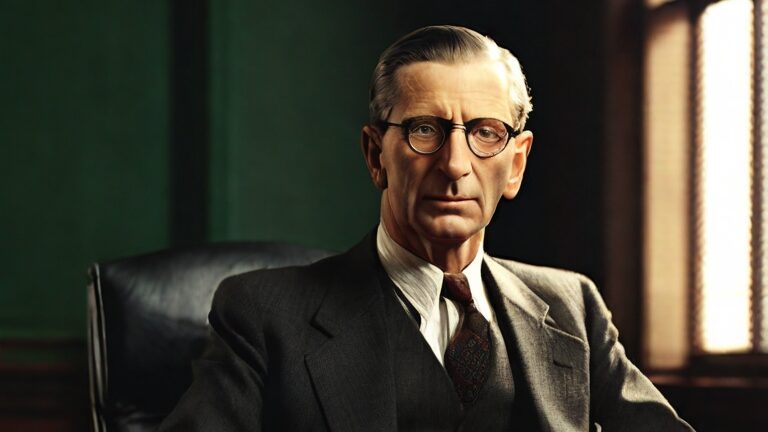
Ireland’s neutrality in World War 2 was a tale of Sovereignty, Independence, and Economic Pragmatism.
In 1939, as the storm clouds of war gathered over Europe, Ireland, under the leadership of Éamon de Valera, made a decisive declaration of neutrality.
This commitment to non-participation in the conflict stemmed from Ireland’s desire to remain unentangled in the geopolitical struggles of its neighbors and to preserve the hard-fought independence.
Despite the ideological sympathies with fellow neutral nations, Ireland maintained a policy of non-alignment, choosing not to join any military alliances.
Historical Context of Ireland’s Recent Independence
The Irish people were overwhelmingly opposed to joining the war.
The backdrop of Ireland’s neutrality was deeply influenced by its recent history. Having secured independence from British rule in 1922, Ireland was still grappling with the consequences of the Anglo-Irish Treaty and the subsequent Irish Civil War.
The scars of these conflicts underscored the importance of maintaining a stance of non-involvement in external conflicts, allowing Ireland to focus on nation-building and healing wounds from its recent past.
They had also suffered greatly during World War I, and Irish did not want to see their country involved in another conflict.
Economic and Social Implications of Neutrality
The decision to stay out of the conflict preserved Ireland’s economic resources and human capital. The country avoided the devastating impacts experienced by many nations involved in the war.
Ireland was a poor country in the 1930s and 1940s, and it was heavily dependent on trade with Britain. Joining the war on either side would have disrupted this trade and caused severe economic hardship in Ireland. As it was, Ireland faced the challenges of rationing and trade restrictions.
For more information about Ireland’s role in World War 2, please read here.
6. Turkey
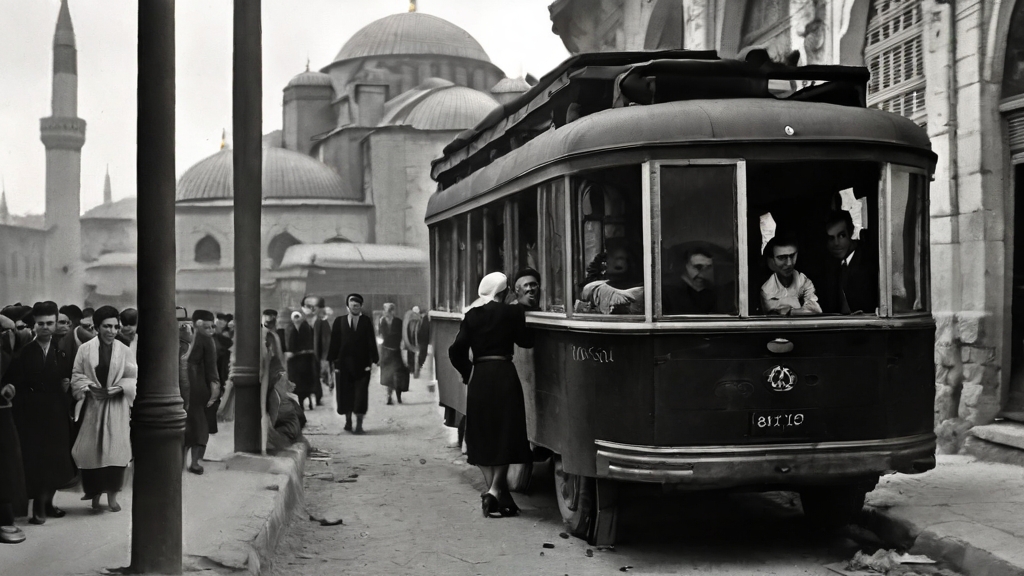
In the early stages of World War 2, Turkey, led by President İsmet İnönü, declared a policy of strict neutrality. This decision was deeply rooted in the lessons learned from Turkey’s involvement in World War I, where it faced significant economic and territorial losses.
The initial stance aimed at preserving Turkey’s sovereignty and avoiding another global conflict.
Turkey is located at the crossroads of Europe, Asia, and the Middle East. This made it a strategically important country, but it also made it vulnerable to attack from multiple directions. Turkey was also concerned about the Soviet Union, which had territorial ambitions in the region.
Turkey’s Economic Cooperation with both the Axis and Allied Powers
Turkey had economic ties with both the Axis and Allies during World War.
Turkey was the world’s leading producer of chromium, a mineral that was essential for the production of steel. The Allies purchased large quantities of chromium from Turkey, which helped to keep their factories running.
Turkey also exported textiles to the Allies, including cotton and wool. These textiles were used to make uniforms and other military supplies.
Turkey was a major producer of opium, which was used to make morphine and other painkillers. The Axis powers purchased large quantities of opium from Turkey, which helped to keep their troops supplied with painkillers.
Turkey also exported minerals to the Allied and Axis powers, including copper, lead, and zinc. These minerals were used in the production of weapons and other military supplies.
Shifting Alliances: Turkey’s Late Entry into the War on the Side of the Allies
As the war progressed, Turkey navigated a delicate diplomatic dance. Facing pressure from both the Axis and Allied powers, Turkey maintained its neutrality until 1945.
The turning point came with the Soviet Union’s entry into the conflict against the Axis. Faced with the growing threat from the south, Turkey recalibrated its position and, in 1945, finally declared war on Germany and Japan. This strategic shift aligned Turkey with the Allies, securing its place among the victors in the post-war landscape.
7. Argentina
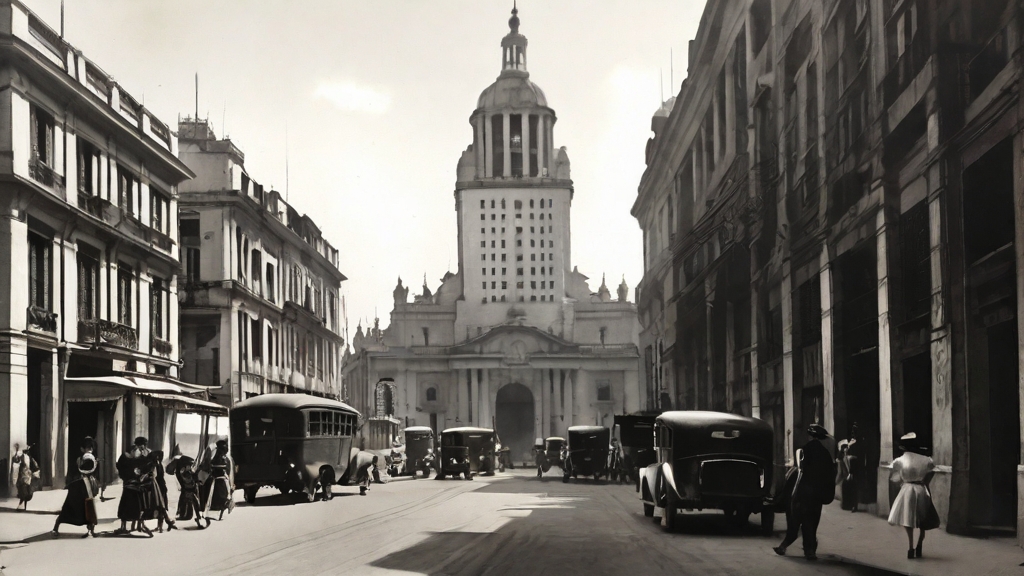
During World War 2 Argentina shifted from initial neutrality to alignment with the Allies.
Argentina’s Initial Neutrality
At the outbreak of World War II, Argentina declared a policy of strict neutrality, seeking to distance itself from the conflict engulfing the northern hemisphere.
Argentina is located in the Southern Hemisphere, far from the main theaters of war in Europe and Asia. This made it difficult for Argentina to provide significant military support to either side.
It was a relatively young democracy, and its government was focused on consolidating its power and avoiding any foreign entanglements. The government also feared that joining the war on either side could lead to social unrest or even a military coup.
However, as the war progressed, diplomatic pressures and changing global dynamics prompted Argentina to reevaluate its position. In 1944, under President Edelmiro Farrell, Argentina shifted its stance, declaring war on the Axis powers and aligning itself with the Allies. This strategic pivot marked a departure from its initial non-interventionist position.
Argentina’s decision to align with the Allies
The Argentine government under Castillo sought to maintain neutrality. However, in 1943, a military coup led by pro-Allied officers overthrew the neutral government of President Ramón Castillo. The new government was more sympathetic to the Allied cause.
The Allied powers, particularly the United States, began to exert pressure on Argentina to join the war.
The changing tide of the war, combined with economic interests and diplomatic overtures from the Allies, led to Argentina’s alignment with the victors in 1944.
8. Saudi Arabia
Saudi Arabia was also neutral during World War II, but it had closer ties to the Allies than Yemen did. In 1945, Saudi Arabia signed a treaty with the United States, which gave the US access to Saudi oil and military bases.
Saudi Arabia also provided some financial support to the Allied war effort. It also allowed British and American aircraft to use its airfields.
9. Afghanistan
Afghanistan’s neutrality was due to a number of factors, including its geographic isolation, and its desire to avoid foreign entanglements.
Afghanistan did trade with the Axis powers. Germany was Afghanistan’s main trading partner during the war. Germany exported manufactured goods to Afghanistan, such as machinery, weapons, and textiles. Afghanistan exported agricultural products to Germany, such as wool, cotton, and fruits.
This was controversial because it was seen as supporting the Axis war effort. The British and other Allied powers accused Afghanistan of providing the Axis powers with essential resources, such as wool, cotton, and minerals.
Occupied Neutral Countries
Belgium
Belgium historically committed to neutrality, reinforced by the 1839 Treaty of London.
Despite its neutrality, Belgium faced a violation as German forces invaded in 1940, leading to occupation and significant repercussions for the nation’s infrastructure and population.
Netherlands
The Netherlands, formally neutral at the war’s outset, fell victim to a German invasion in 1940.
Dutch civilians experienced the harsh realities of occupation, enduring economic hardships and cultural challenges, while demonstrating remarkable resilience and engaging in resistance efforts.
Luxembourg
Luxembourg historically maintained neutrality, supported by international agreements. B. Invasion and Occupation by German Forces:
In 1940, Luxembourg faced a German invasion, experiencing strategic importance and enduring consequences on its political and economic landscape under occupation.
Iceland
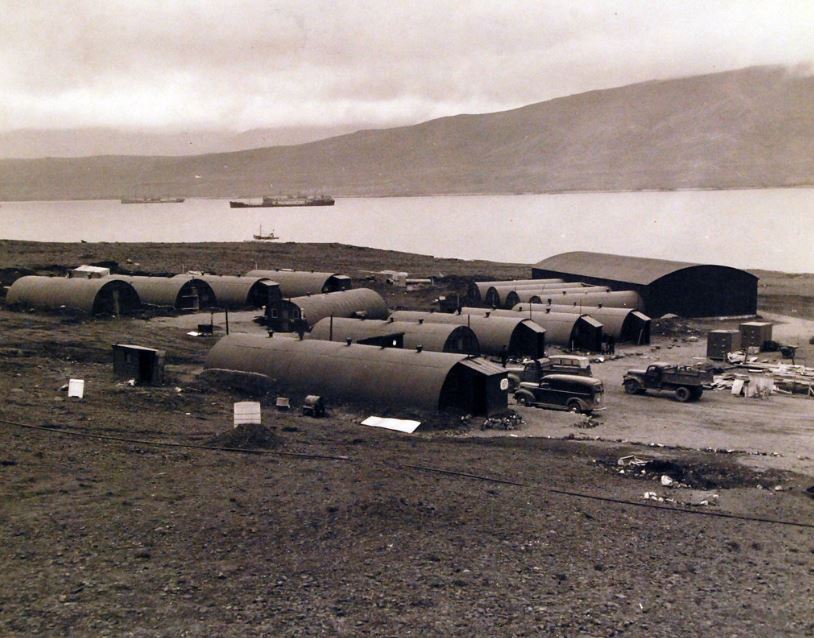
Geopolitically positioned in the North Atlantic, Iceland declared neutrality early in the war.
Allied forces occupied Iceland in 1940 to prevent a potential German takeover, impacting Icelandic society and economy. Iceland became a crucial base for the Allies during the war.

